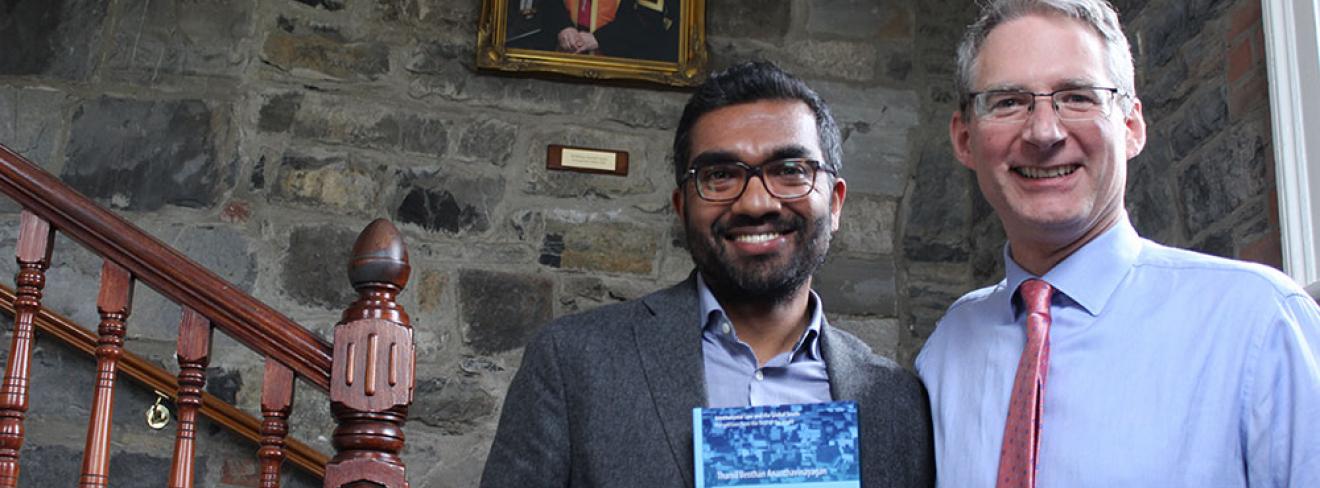Griffith College Lecturer Launches First Human Rights Book

Griffith College Lecturer Launches First Human Rights Book
Law lecturer at Griffith College Dr. Thamil Venthan Ananthavinayagan gave us an insight into what to expect from his upcoming book launch: "Sri Lanka, Human Rights, and the United Nations. A Scrutiny into the International Human Rights Engagement with a Third World State."
Thamil's book launch will coincide with the Seminar on Human Rights and Mass Atrocities which is set to take place at Griffith College on Wednesday 19 June. Those interested are asked to contact [email protected] directly.
Behind the Book
"Well, this book is based on my PhD, a product of four years of doctoral research – a long and dire process of meticulous and often frustrating academic writing. I wrote this book also in light of my own personal narrative. The more I wrote, I became more critical of the often standardised formulation of human rights as the panacea to all ills of the world, but also its Western construction. The book, in a nutshell, analyses the international human rights engagement of the United Nations with Sri Lanka and how it has (or has not) impacted the human rights environment in Sri Lanka."
"The more I researched, I became a critical international legal scholar. I call consider myself a member of a critical school of thought now, the Third World Approaches to International Law. This book has shaped me to become the scholar I am now - with the emphasis to see international legal issues more critically, also against the background of colonialism, post-colonialism and imperialism."
"Thinking of this book, I can only recall that one sentence of Martin Luther King Jr.: Life is a beautiful struggle. It certainly is. And once you made it to the mountaintop, you will know: I fought. And I won."
A Close Connection
"I was born and raised in Bonn, Germany by my parents who were Tamil refugees from Sri Lanka. Growing up in Bonn, the former capital of Germany, I was very much exposed to the multicultural environment there. Very early I was socialized with this international environment with my best friends coming from Sudan, Croatia, Philippines, and other countries - I was eager to explore more about the world out there. My father, a famous Tamil freedom hero, emphasised education and encouraged me to learn different languages and cultures, while my mother was very eager to see me becoming a judge one day. My father, who spent seven years in the infamous Welikade Prison in Sri Lanka, told me once that fighting for the rights of others is always the “right thing to do, even if you have to pay with own imprisonment.”
The Writing Process
Well, as I said, writing a book forces you to become more critical, more meticulous, more diligent and more stringent in your research techniques. It broadens your mind, it constantly challenges you. See the book as your main adversary. An (academic) beast that you need to tame: it requires patience, a strategy and wise foresight in tackling the immense force that overwhelms you. Thankfully, I had the great support of amazing academics at the Irish Centre for Human Rights, most notably my supervisor Dr. Shane Darcy.
Beyond the Book
"I hope that the release of the book will hopefully prove to be a catalyst in my academic improvement: it is definitely an incentive to get to the next level. Write and publish the next book, perhaps. Offering the venues to present the book in other places. But in particular, people should take note that I am here to shake up the academic world. "
